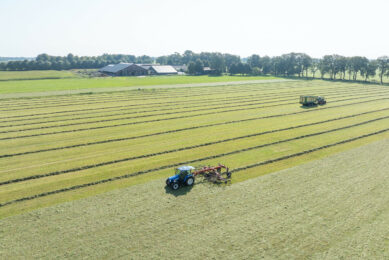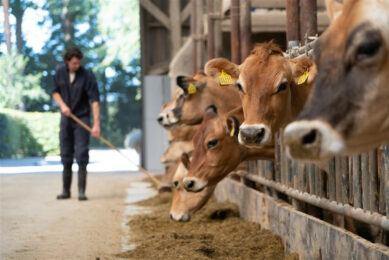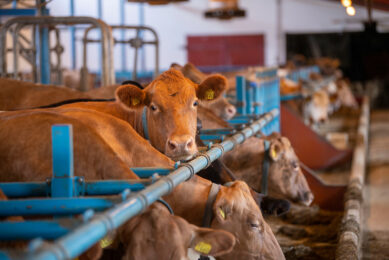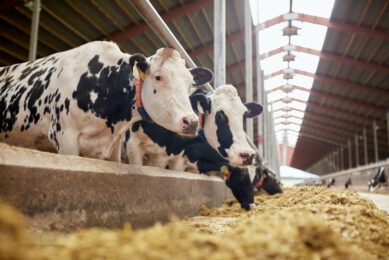Global Feed Safety Summit kicks off
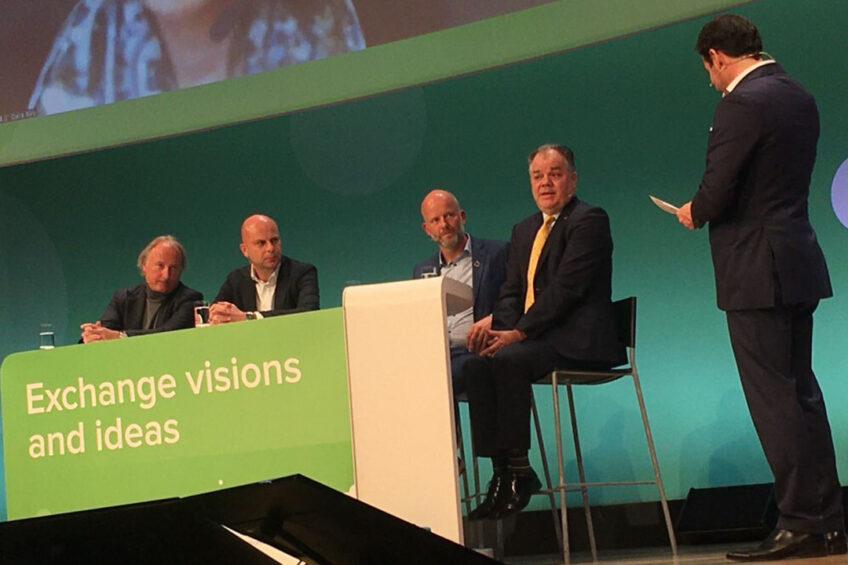
On the first day of the 3-day Global Feed Safety Summit in Berlin, Germany, key decision-makers set the stage for years to come. The GMP+ International and Misset’s All About Feed organisers welcomed close to 200 participants to discuss trending topics and current issues of securing feed and food safety.
Summit host and GMP+ International managing director, Roland van der Post, said that the feed industry cannot take feed safety for granted: “We have to keep developing our safety control schemes in the years to come. In the broad sense of things, we must be prepared for the demands beyond tomorrow.”
The challenge of antimicrobial resistance
It was first speaker, Ruud Tijssens, chair of the International Feed Industry Federation (IFIF), who focused on the challenges we all face. According to Tijssen, antimicrobial resistance remains a huge problem. “We tend to look at this from a Western perspective, but the world is far bigger than that. In the developing world, dynamics are different, so we have to be aware of the issue of antibiotics in 45 countries around the world. It is still common practice to use antibiotics in feed preventatively.”
The same difference in perspective can be seen if it comes to increasing animal protein production. “Compared to 2010, we have to produce 1.6 times more animal protein by 2050 to feed the world’s population. This is not my personal vision; this is based on the facts we know today. Despite our ‘green’ politics, we must produce more meat. In the West, we tend to say that meat alternatives or even insects could be the way forward, but these won’t grow from air – they have to be fed too.”
“We need all the protein we can possibly find to be able to feed the world…”
Tijssens was supported on this by Professor Leo den Hartog of Wageningen University. “In the next 40 years, we have to produce more food than in the last 40,000 years combined. To reach that, alternative proteins are not in competition with animal protein. We need all the protein we can possibly find to be able to feed the world,” says Den Hartog.
In the view of Den Hartog, improving sustainability and being able to get the most out of the one planet we have, plant protein and animal protein go hand in hand. “In our work at the university, we modeled the ideal situation of use of resources. The basis is that all plant protein, which is fit for consumption, is prioritised for humans. It is then the co-product valorisation by animals that will supply our meat. Apart from that, grasslands not fit for food production will feed part of our animals. In the planet optimum, 40% (50 grammes/person/day) of our protein will be animal protein.” He added that going vegan is making the protein issue worse, not better.
Sustainability and innovation
Implications of the European Green Deal and farm to fork strategy were explained by Claire Bury, deputy director-general of the European Commission (SANTE). According to Bury, sustainability is key in the years to come as is innovation, which is an integral part of the farm to fork strategy. “At the same time, we are in a time of pause, as the Ukrainian conflict highlights the need for food security as well,” she said.
Critical panel
Food security was also a main topic for the panel discussion. Bas Geerts and Robert van der Zee of Cefetra, Patrick Charlton of Alltech, Eric Visser of Hamlet Protein and Jaana Kleinschmit at ADM were somewhat critical of the farm to fork strategy. The demand for 25% organic farming in the Green Deal, in particular, did not resonate well. Charlton was very clear on that: “Organic production is not the best way forward for more sustainable production.”
This was supported by Kleinschmitt: “Our industry has the responsibility to feed the world and it is the responsibility of legislators as well. Food security and availability at a reasonable price level are in jeopardy with organic production. Less production per hectare is not the direction.”
“Animal protein production is sustainable and our industry is innovative to cope with any problem.”
Visser acknowledged that the industry has one shortcoming: “Animal protein production is sustainable and our industry is innovative to cope with any problem. However, we are not prepared or equipped to counter pushbacks from anti-animal protein groups in a coordinated effort.”
Overseeing the discussion is what the industry needs, for one, to tackle the 25% organic legislation. In the words of Leo den Hartog: “Please don’t tell the industry how to reach certain goals; just give us the targets that we have to achieve and give us the freedom to make it work.”
Join 13,000+ subscribers
Subscribe to our newsletter to stay updated about all the need-to-know content in the dairy sector, two times a week.



